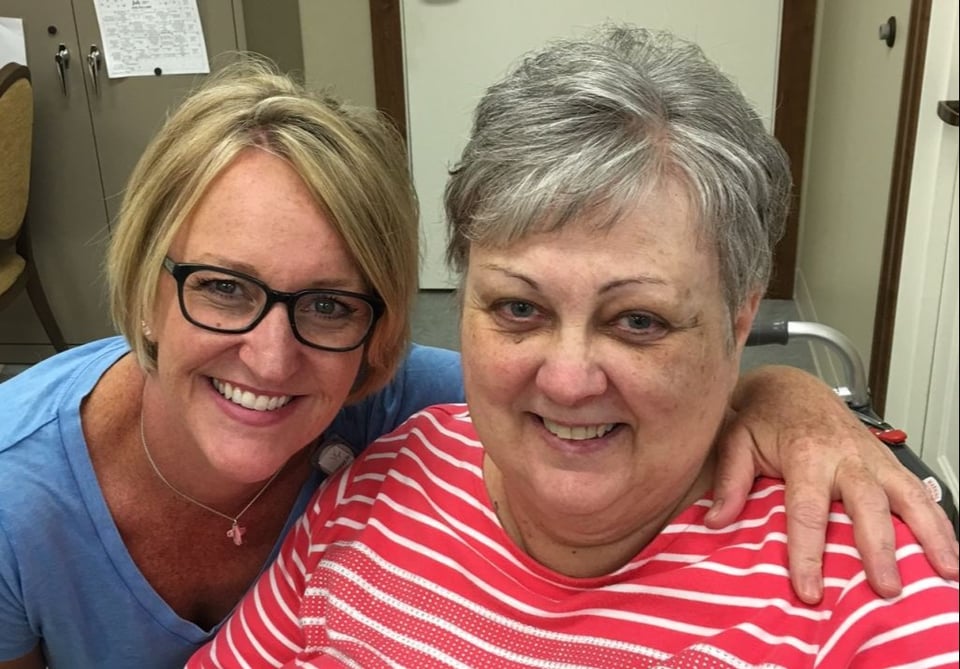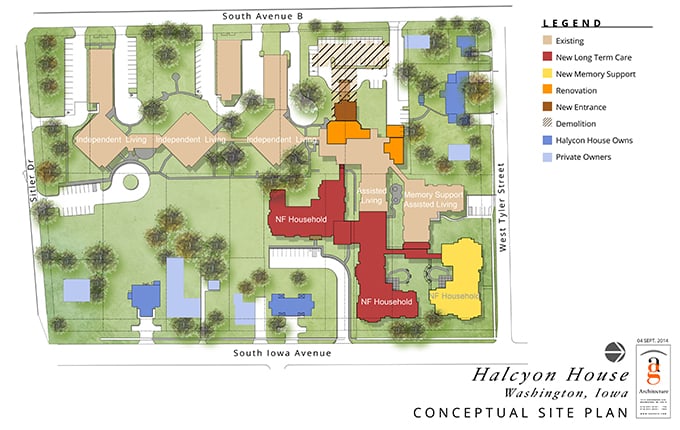If you or a loved one needs assistance and you’re exploring options for skilled care, you may come across the terms “skilled nursing,” “long-term care,” “short-term rehabilitation,” and “skilled rehabilitation.” Navigating these options can be a bit confusing. Let’s define these terms and look at rehab versus skilled nursing so you can choose the best fit for your needs.
What is skilled nursing/long-term care?
Long-term care, also called “skilled nursing,” is ongoing, 24/7 care delivered in a homelike setting, sometimes referred to throughout the industry as a “skilled nursing facility,” or SNF.
Skilled nursing care can be tailored to the level of need, so there is no one-size-fits-all definition. This type of care often consists of:
- Clinical support for health conditions or disabilities
- Chef-prepared meals
- Transportation and planned programming
- A helping hand with activities of daily living, such as bathing and dressing
Because skilled nursing is a long-term solution, it suits older adults who need ongoing assistance. Often, people consider skilled nursing care because a physician recommends it. Individuals and families may also determine on their own — or with the help of a senior living advisor — that long-term care is the best solution for maintaining a high quality of life.
What is short-term rehabilitation/skilled rehabilitation?
Short-term rehabilitation, also called “skilled rehabilitation,” is designed to meet a temporary need for care. This need can arise for a variety of reasons, including:
- Surgeries, such as joint replacements
- Accidents and injuries
- Illnesses
- Strokes
Skilled rehabilitation typically serves as a transition after someone leaves the hospital and before they return home to resume their typical lifestyle. After they’ve recovered, many people are ready to leave a clinical setting but aren’t quite prepared to return home, especially if they live alone. Short-term rehabilitation can be a valuable bridge between the two.
Like skilled nursing, skilled rehabilitation is delivered in a community setting. You may even hear it referred to as “SNF rehab” because it takes place in a skilled nursing facility. It also includes many of the same services as long-term care.
Short-term rehab benefits clients by:
- Providing specific therapies and treatments, such as physical, occupational, or speech therapies.
- Giving clients a comfortable place to regain independence with help from skilled team members.
- Removing the burden of tasks like meal preparation so clients can focus on their recovery.
What is the difference between skilled nursing and rehab?
Is skilled nursing the same as rehabilitation? Not quite. That said, you will find some overlap if you compare skilled nursing and rehab. These forms of care share key similarities in the community setting and skilled assistance offered. Also, both types of care can be tailored to fit individual needs.
The main difference between these forms of care is the length of stay. Short-term services can vary from a few days to a few weeks, depending on the circumstances and a client’s progress. Your rehab team will work closely with your doctor to determine how you're progressing and how quickly you can return home.
On the other hand, long-term care usually does not promise an end date. Many people transition permanently to a form of community living when doing so can improve their quality of life. In fact, nearly 70 percent of adults 65 and older rely on some long-term care as they age.
What are WesleyLife’s short- and long-term care options?
WesleyLife offers a variety of support services, including short-term rehabilitation and long-term care. Whether you call a WesleyLife Community for Healthy Living “home” for a couple of weeks or many years, our team is here to support you and help you live your best life.
Many of our communities offer short-term rehabilitation programs to help you thrive in recovery. With a complete network of health and wellness services and team members qualified in specialized areas — such as orthopedic injury and surgery, neuromuscular insufficiency, stroke, and cardiac condition rehabilitation — we’re equipped to offer excellent care that enhances your quality of life and decreases the chance you’ll be re-hospitalized.
If you need more permanent assistance, consider long-term care. Our communities are far from stale, impersonal environments! Instead, our long-term care residents enjoy homelike settings, closely knit communities, robust programming, delicious meals, clinical support, and friendly assistance with everyday needs.
Are you interested in short-term rehabilitation or long-term senior living for yourself or a loved one? Find a community near you!





